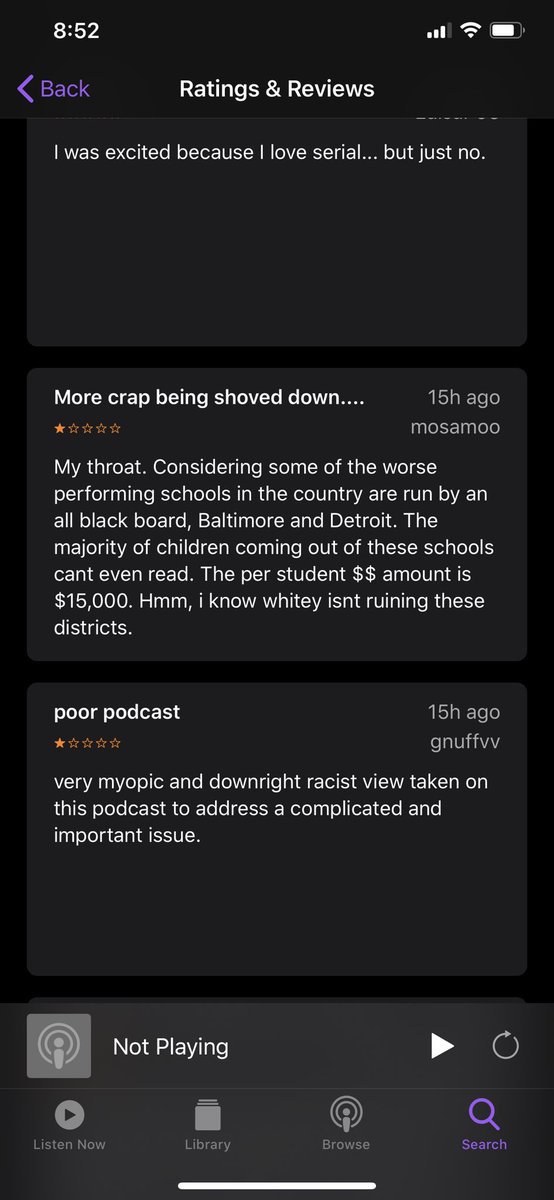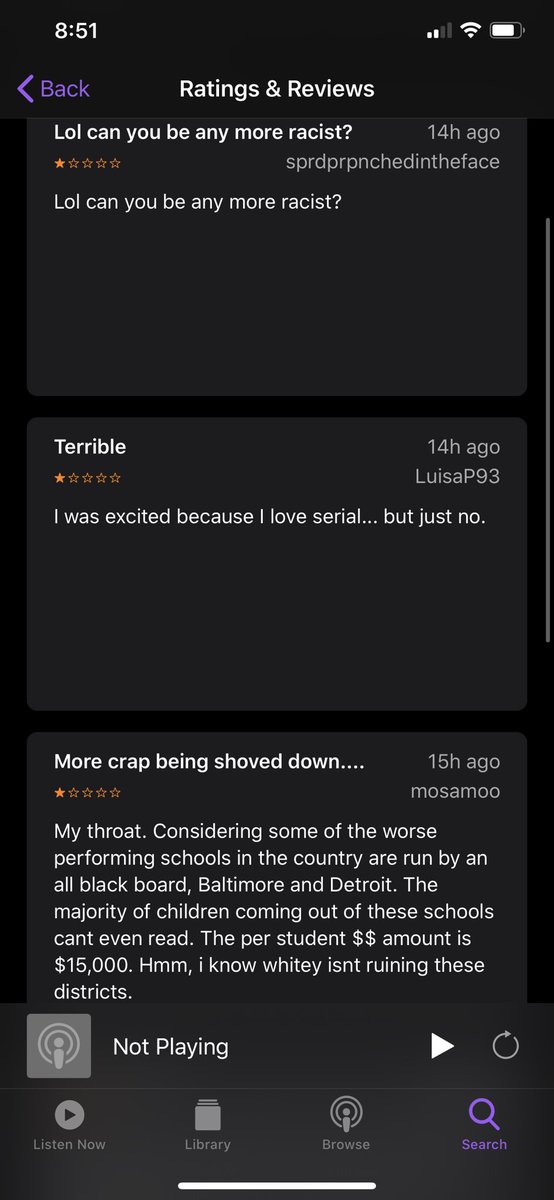There’s a few things at play here. The first being the obvious. A lot of white people immediately recoil when confronted with how normal, everyday decisions support white supremacy.
So, the title and premise of the podcast are provocative. I don’t know whether or not it’ll be well done, or how clear a case will be presented. But the title is enough to anger and earn the immediate dismissal of people who could stand to understand the topic better.
But there are many, many studies done on school segregation and education outcomes. It’s not like the NYT and this pod had to gin this up out of thin air. https://www.epi.org/publication/schools-are-still-segregated-and-black-children-are-paying-a-price/
When we talk about access to resources and opportunities, much of that starts with and is controlled by housing and schooling, which is why the history of redlining had such lasting impact https://www.jchs.harvard.edu/sites/default/files/a_shared_future_consequences_of_segregation_for_children.pdf
There’s also the perpetual need and tendency to want to distance (or even completely sever ourselves?) from the not-so-distant past, abandoning the basic idea of chronology. But what happened yesterday still impacts today. Because that’s how time works https://www.brookings.edu/blog/brown-center-chalkboard/2020/01/20/the-achievement-gap-in-education-racial-segregation-versus-segregation-by-poverty/
The specifics on how redlining impacts education, and how there’s an aggregate impact on school performance, opportunity and wealth across generations is particularly damning http://nextedresearch.org/redlining-and-its-stealth-impact-on-education/
A key indicator to always be mindful of is how a person explains or rationalizes racial inequality. Some will deny it exists at all. But once you acknowledge it, it can really only be explained by 2 schools of thought. Either Black people are inherently inferior, or its systemic.
The people who “don’t believe in systemic racism”, are typically not comfortable admitting explicitly that they believe Black people are inherently inferior. They’ll use words like culture and quote statistics about Chicago and Detroit and liberal leadership etc etc. buzzwords.
They’ll also lean heavily on the idea of radical individualism. Bc that’s one of the primary privileges of whiteness, especially in America. Reverting attention to individual and “personal responsibility” is an adequate excuse in their mind to avoid examining societal structure
But even “personal responsibility” tropes are a damning admission. If outcomes for Black people on average or worse than outcomes for White people on average, it means that you believe white people are more “personally responsible” on average than Black people.
And this is why the logic depends on isolation. A) isolation from social context and macro factors (individualism) and B) isolation from historical context and chronology
If you’re ever engaging in conversations with white ppl about race who are hellbent on denying systemic and societal issues, they will almost, without fail, use these isolation tactics. They’ll diminish or completely deny the impact of history, and they’ll focus on individualism.
Because their logic doesn’t hold up without doing those things. And while many do so out of malice, a lot do so out of cognitive dissonance. Because they need to preserve their idea of themselves as “good, hard working people”
And to be clear, they may very well be “good, hard working people”. But conceding to systemic racism and white supremacy being the undeniable fact and force that it is also means accepting that they have benefited from advantages they didn’t personally ask for.
And because life is generally hard for everyone, the idea that they’ve experienced this unsolicited advantages, and still experience struggle or resistance inherent in life for everyone? It threatens their self-view and the idea of meritocracy.
“I’m white and life is still hard, therefore what racism?” Is a very real sentiment that people think makes sense, or maybe more accurately, really need to believe makes sense.

 Read on Twitter
Read on Twitter





